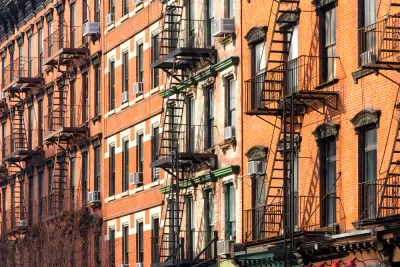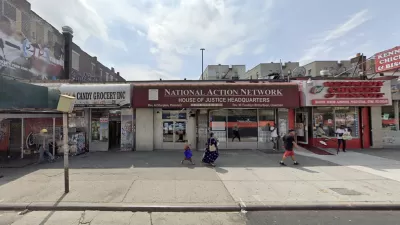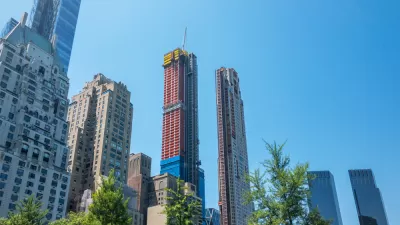The area could lose up to 500 units of affordable housing every year for the next 30 years if the city doesn't extend existing protections.

By 2040, affordability restrictions will expire for more than a fourth of all residential units in East Harlem, according to a new study by Regional Plan Association.
"A loss of regulated affordable housing of this magnitude would increase economic pressure on low and moderate-income residents," ultimately forcing many to leave, author Pierina Ana Sanchez warns in the abstract.
To prevent that outcome, the report proposes "requiring affordable housing created to guarantee affordability in perpetuity":
This can be done by restructuring existing programs, or supporting community and public ownership models including community land trusts, land lease agreements and expanded public housing … As urban areas become more attractive and new residents move in, there should be more efforts to shore up long-term residents’ ability to remain a part of the community.
It also locates opportunity in the Housing New York program, which will rezone the city to encourage residential development and to require inclusionary housing. Especially in gentrifying neighborhoods, those changes could create "a lab for the encouragement of inclusive and sustainable development."
The preservation of affordable housing is especially important to East Harlem and areas like it that have "historically welcomed people excluded by [overtly] discriminatory policies from living elsewhere," Sanchez notes:
Their displacement ultimately would be damaging for the city and for the entire region, which relies on having residents of diverse backgrounds, income levels and experiences to fill the range of jobs needed to make our economy function. And it would harm residents who would face leaving a community that is well connected to jobs, health care and education.
FULL STORY: Report: One-Fourth of East Harlem Units Could Lose Affordability Restrictions by 2040

Planetizen Federal Action Tracker
A weekly monitor of how Trump’s orders and actions are impacting planners and planning in America.

Maui's Vacation Rental Debate Turns Ugly
Verbal attacks, misinformation campaigns and fistfights plague a high-stakes debate to convert thousands of vacation rentals into long-term housing.

San Francisco Suspends Traffic Calming Amidst Record Deaths
Citing “a challenging fiscal landscape,” the city will cease the program on the heels of 42 traffic deaths, including 24 pedestrians.

Defunct Pittsburgh Power Plant to Become Residential Tower
A decommissioned steam heat plant will be redeveloped into almost 100 affordable housing units.

Trump Prompts Restructuring of Transportation Research Board in “Unprecedented Overreach”
The TRB has eliminated more than half of its committees including those focused on climate, equity, and cities.

Amtrak Rolls Out New Orleans to Alabama “Mardi Gras” Train
The new service will operate morning and evening departures between Mobile and New Orleans.
Urban Design for Planners 1: Software Tools
This six-course series explores essential urban design concepts using open source software and equips planners with the tools they need to participate fully in the urban design process.
Planning for Universal Design
Learn the tools for implementing Universal Design in planning regulations.
Heyer Gruel & Associates PA
JM Goldson LLC
Custer County Colorado
City of Camden Redevelopment Agency
City of Astoria
Transportation Research & Education Center (TREC) at Portland State University
Jefferson Parish Government
Camden Redevelopment Agency
City of Claremont




























